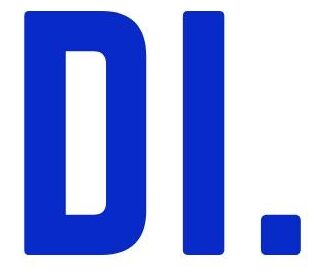The Ultimate Guide to Mastering Management Tools in 2023!
I. Introduction
Welcome to the forefront of business evolution, where mastering management tools is no longer just an option but a strategic imperative. As we embark on this comprehensive guide tailored for discerning business owners and investors, we delve into the dynamic world of management tools in 2023. Here, we unveil the key trends, explore the significance of effective tools, and equip you with actionable insights to harness the full potential of these essential business assets.
II. The Significance of Effective Management Tools
In the ever-accelerating pace of business, effective management tools serve as the linchpin for streamlined operations, informed decision-making, and sustained growth. These tools encompass a wide array of applications, from project management to analytics, each playing a pivotal role in enhancing organizational efficiency and, consequently, bottom-line results.
III. Key Trends in Management Tools for 2023
As we navigate through 2023, it’s crucial to understand the trends shaping the management tools landscape. Advancements in artificial intelligence, analytics, and collaboration tools are not just buzzwords; they represent the transformative potential of tools that can redefine how businesses operate. Stay tuned as we unravel the implications of these trends on your business strategies and competitiveness.
IV. Choosing the Right Management Tools
Selecting the right management tools requires a strategic approach. In this section, we provide you with a comprehensive framework to assess your organizational needs and goals. We outline key considerations, including scalability and integration, and delve into customization options to align tools seamlessly with your specific business processes.
V. Implementation Best Practices
Implementing management tools is not just a technological upgrade; it’s a cultural shift. Our step-by-step guide walks you through the process, addressing potential challenges and providing strategies to overcome resistance within your organization. Drawing on success stories, we illustrate how businesses have seamlessly integrated management tools, reaping the rewards of enhanced efficiency and improved decision-making.
VI. Case Studies: Real-world Impact of Management Tools
Explore in-depth case studies that spotlight businesses thriving after the adoption of effective management tools. Discover firsthand the tangible benefits experienced, from increased efficiency and improved decision-making to enhanced collaboration. These real-world examples serve as beacons, guiding you towards the transformative power of strategic tool adoption.
VII. Maximizing ROI: A Practical Approach
Investing in management tools is a financial decision with significant implications. In this section, we discuss the financial considerations associated with such investments, providing practical strategies for measuring and maximizing return on investment (ROI). Learn how to optimize tool usage to ensure sustained financial benefits for your organization.
VIII. Future-proofing Your Business with Management Tools
As the business landscape evolves, future-proofing becomes imperative. Discover how strategic management tool adoption is not just about staying relevant but fostering innovation within your organization. Uncover the role these tools play in adapting to industry changes and positioning your business as an innovative leader.
IX. Actionable Insights for Business Owners and Investors
As we near the culmination of this guide, we distill key insights for business owners and investors. With a proactive approach and strategic mindset, you can harness the transformative potential of management tools. Our recommendations for further resources ensure your journey towards mastering management tools is an ongoing and dynamic process.
IV. Choosing the Right Management Tools
Selecting the right management tools is a critical step towards enhancing your business operations. Here, we outline a spectrum of tools that cater to different facets of management, providing you with a starting point for strategic adoption:
1. Project Management:
- Example Tool: Asana
- Asana offers intuitive project management features, allowing teams to collaborate seamlessly, assign tasks, and track project progress.
2. Collaboration and Communication:
- Example Tool: Slack
- Slack is a real-time messaging platform that fosters collaboration, file sharing, and communication, streamlining team interactions.
3. Customer Relationship Management (CRM):
- Example Tool: Salesforce
- Salesforce is a robust CRM platform that helps businesses manage customer relationships, track sales leads, and automate marketing campaigns.
4. Analytics and Business Intelligence:
- Example Tool: Tableau
- Tableau provides powerful data visualization and analytics tools, enabling businesses to derive actionable insights from their data.
5. Human Resources Management:
- Example Tool: BambooHR
- BambooHR streamlines HR processes, offering features for employee onboarding, performance management, and time tracking.
6. Financial Management:
- Example Tool: QuickBooks
- QuickBooks simplifies financial management with tools for invoicing, expense tracking, and financial reporting.
7. Workflow Automation:
- Example Tool: Zapier
- Zapier automates workflows by connecting different apps, allowing for seamless data transfer and task automation.
8. Enterprise Resource Planning (ERP):
- Example Tool: SAP Business One
- SAP Business One integrates core business functions, including finance, sales, and inventory management, into a unified system.
9. Document Management:
- Example Tool: Microsoft SharePoint
- SharePoint facilitates document collaboration, version control, and file sharing within organizations.
10. Customer Support and Ticketing:
- Example Tool: Zendesk
- Zendesk streamlines customer support with features like ticketing, live chat, and knowledge base management.
X. What we learned so far:
In conclusion, the mastery of management tools in 2023 is not just a competitive advantage; it’s a prerequisite for sustained success. As we wrap up this ultimate guide, we extend a resounding call to action. Embrace these tools, not as mere assets but as catalysts for business evolution. The future is now, and with strategic management tool adoption, your business can navigate the complexities of the modern business landscape with confidence and competence.

